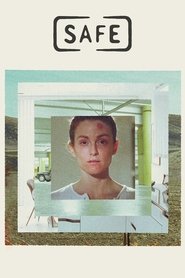Safe is a subtly disturbing film about an upper-middle-class housewife who begins to complain about vague symptoms of illness. Initially claiming that she “doesn’t feel right,” Carol has unexplained headaches, a dry cough, nosebleeds and eventually begins to have trouble breathing. Carol’s family doctor treats her concerns with little care, and suggests to her husband that she sees a psychiatrist.
Carol’s episodes soon escalate. As a ‘homemaker’ and with nothing else to occupy her, Carol’s orders a new couch for a party. But when the store delivers the wrong one (although it is not altogether clear that they did), Carol has a near breakdown. Unsure where to turn, an allergist tells Carol that she has “Environmental Illness,” and she eventually checks herself into a new-age commune filled with ‘alternative’ therapies.
On the surface, Safe is a film about the increasing about of pesticides and chemicals in our lives, something that was felt far more viscerally in the 1990s. But it is also a film about how lack of genuine healthcare for women must be seen as a critical factor in the rise of crank medicine. (Indeed, it made for something of an uncomfortable watch during the coronavirus lockdown.) More interestingly, however, Safe gently examines the psychosocial causes that may be aggravating Carol’s illness, including her vacant marriage, her hollow friends and the low-calorie nature of suburbia. None of this should be especially new to anyone: the gendered Victorian term ‘hysterical’ is often all but spoken throughout this film, and perhaps from the very invention of medicine, women’s symptoms have often been minimised or dismissed. (Hilary Mantel’s 2003 memoir, Giving Up the Ghost is especially harrowing on this.)
As I opened this review, the film is rather subtle in its message. Just to take one example from many, the sound of the cars is always just a fraction too loud: there’s a scene where a group is eating dinner with a road in the background, potentially representing the fumes of a (genuinely) toxic modernity into our social lives. I won’t spoiler the conclusion of this quietly devasting film, but don’t expect a happy ending.
[Carol's] first home is opulent, the second one spartan; both are designed to keep out the world, safe havens that are also prisons of the self.[…]
Safe takes the linear, inspirational trajectory of the medical case-history movie—a triumph over odds or a coming to terms—and bends it into a circle, two mirrored halves, moving Carol from one controlled environment to another, both dominated by patriarchal figures who tell her, albeit in very different ways, that she made herself sick.
— Dennis Lim (Criterion)
The fact that [Carol] loves herself, or thinks she does, may represent some marginal improvement in her condition, but considering the zero Haynes has chosen to make of her, it’s hard to know what her “self” consists of.
— Jonathan Rosenbaum (Chicago Reader)
With her pink clothes and porcelain skin, Carol blends into her surroundings like a suburbanite chameleon, an expensive, mid-eighties accessory among many, or an Ibsenesque doll made to be seen and, as she stutters and stumbles through most of her dialogue, determinedly not heard.[…]
Another source, Charlotte Perkins Gilman’s short story The Yellow Wallpaper (1892), is mentioned obliquely, when Carol struggles to find words to describe her childhood bedroom. Lying head-to-head with another Wrenwood patient for this exercise, she strains to name any detail, finally coming up with yellow wallpaper.
— Genevieve Yue (Reverse Shot)

